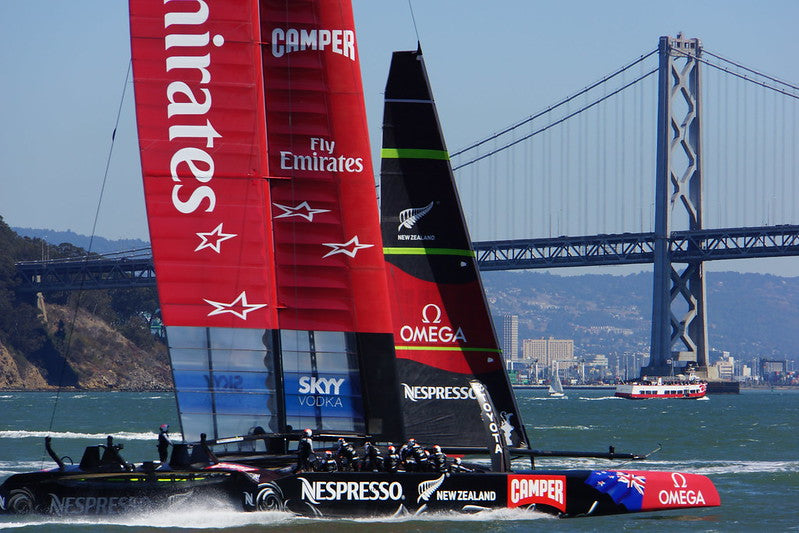Fuelling Better Performance

It is a truth self-evident that good diet and nutrition choices enable better performance. There are numerous studies that show considered and proper nutrition can significantly impact output and recovery. It’s a tough ask though; to both know, and correctly implement dietary regimes that both benefit your body and mind. As a new year dawns though, there has never been a better time to review and readdress your nutritional intake.
Body composition, training routines and goals vary enormously amongst rowers. The needs and demands of a female lightweight rower are different to those of a male heavyweight rower. The fundamentals remain the same though – Moe Sbihi, a three-times GB Olympian, stated in the GB Rowing Nutrition Guide, that "healthy eating and regular habits are paramount and this includes avoiding supplements where necessary".
A 68kg rower who is training hard will burn over 300 calories during a 30 minute ergo session.
Let's look at the composition of a healthy diet. As an athlete, you will require more calories than the average person; a 68kg rower who is training hard will burn over 300 calories during a 30 minute ergo session. To address this deficit, sports nutritionist Nancy Clark states that "you need a diet that is rich in grains, fruits, vegetables, sugars and starchy foods to replenish the muscle and liver glycogen stores that got depleted during training sessions".
Day to day, a balance of white meats, green vegetables, wholegrain pastas, rice, pulses, a range of fruit and plenty of water is a great way to start. There are some nuances to observe though. Before a workout, think about wholemeal bread, low-fat yoghurt or a breakfast cereal with almond or soya milk. Shortly before you begin, a punch of sugar can help fuel performance – this can come from a sports drink, a chocolate bar or a piece of light fruit (banana, orange).
Eating carbohydrates before exercise is important to fuel your muscles.
Eating carbohydrates before exercise is important to fuel your muscles. "Carbohydrates are your first energy source," says Kate Burks, sports dietician and nutrition coach. "They are stored as glycogen in the muscles, but unlike fat, there is a limited amount that can be stored at one time." When you begin your workout, your body’s first reaction is to use up the glycogen stored in your muscles for fuel. In order to maximize your training, it is vital that these stores be full before you start.
After you finish training, recovery is critical. Think about a light snack in the hour following exercise (a breakfast bar, a piece of fruit or some nuts can work well). If you’ve got an allergy to nuts, we’d recommend seeds – sesame with tahini or chia work well. After an intense training session, or one lasting longer than one hour, you have completely depleted the glycogen stores in your muscles. Using a sponge analogy, imagine that right after the workout, the holes of the sponge are open and ready take in fuel. The holes stay open for up to one hour after the workout before they will close.
"It is important to not only act quickly, but to choose a post-workout snack with simple sugars,"
"It is important to not only act quickly, but to choose a post-workout snack with simple sugars," says Burks. "They are broken down more quickly and will be delivered more quickly to the muscles. Waiting more than one hour, we put 50 per cent less fuel back into the body."
Ensure you have a well-balanced meal two to four hours after workout completion – suggestions include a chicken, chickpea and spinach curry, roast chicken with vegetables or a leek, pepper and bean chili con carne with rice. Although carbohydrates are once again extremely important, the addition of a small amount of protein helps with muscle synthesis, which is also important for recovery.
So what are the handy habits you can adopt to improve your eating habits in 2022? British Rowing have several really helpful suggestions on their nutritional guide, including:
- Meal plans – these can save you from impulse purchases and give you peace of mind that you've got what you need in-house to create a well-balanced meal
- Tupperware – easy to store and great for cooking meals in bulk so you have lunch fixed for the following day
- Frozen fruit – a real lifesaver when you want a quick hit in the form of a smoothie. A personal favourite is frozen raspberries and blueberries with a banana, some spinach and a small amount of apple or orange juice. Blend it together and you're in business
- It goes without saying but learning to cook basic dishes is critical, especially if you're at university/living alone – easy starting points are spaghetti Bolognese, chilli con carne, stir fries and homemade curries
- Cook in bulk and let that spirit of student living linger on – if you can cook larger portions, you're then able to eat the same meal for one, two or even three days after. It saves you time and effort and builds up a pattern of healthy eating
Sources:
- British Rowing Nutrition Guide
- Rowing News - Teaming up with good nutrition
- World Rowing - Fuelling the sponge using nutrition to improve performance
words by Junior Rowing News edited by Square Blades
photo by Louis Hansel on Unsplash








